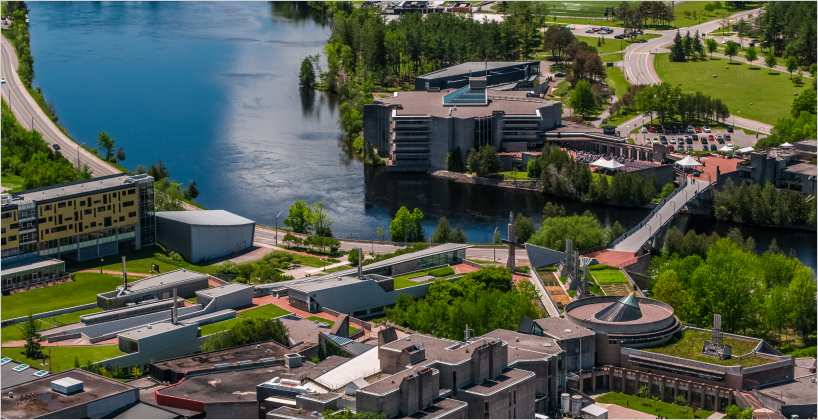Table of contents
Becoming a dentist in Ontario and throughout Canada is a journey that involves rigorous education, training, and licensure processes. From completing undergraduate studies to obtaining a dental degree and securing licensure, aspiring dentists must navigate through multiple steps to achieve their professional goals. In this comprehensive guide, we’ll explore the educational requirements, licensing procedures, and career prospects for dentists in each province, along with a list of dental schools across Canada.
Preparing in High School
In high school, aspiring dentists can lay the groundwork for their future careers by focusing on a well-rounded education with a strong emphasis on science and mathematics. Taking advanced courses in biology, chemistry, and physics can provide a solid foundation for understanding the principles of dental science. Additionally, honing critical thinking, problem-solving, and communication skills through extracurricular activities such as debate clubs, science fairs, or volunteering in healthcare settings can be invaluable.
Seeking out opportunities to shadow dentists or participate in internships or summer programs related to dentistry can offer firsthand experience and insight into the profession. Furthermore, maintaining a high GPA can increase the likelihood of acceptance into competitive pre-dental programs and ultimately dental school. Overall, utilizing high school as a time to explore interests, build academic strengths, and gain exposure to the field of dentistry can pave the way for a successful career as a dentist.
Overall Educational Requirements to Be A Dentist
- Undergraduate Education: Aspiring dentists typically begin their journey by completing a Bachelor’s degree. While there is no specific undergraduate major required, degrees in biology, chemistry, or related fields are common choices. Maintaining a high GPA is crucial for admission to dental school.
- Dental Admission Test (DAT): Prospective dental students must undertake the Dental Admission Test (DAT), a standardized exam assessing academic knowledge and perceptual abilities. High DAT scores significantly enhance the chances of acceptance into dental school.
- Dental School: Successful completion of a Doctor of Dental Surgery (DDS) or Doctor of Dental Medicine (DMD) program accredited by the Commission on Dental Accreditation of Canada (CDAC) is mandatory. Dental school typically lasts for four years and provides comprehensive training in clinical practice, patient care, and dental theory.
Licensing Procedures
- National Dental Examining Board of Canada (NDEB) Certification: After graduating from dental school, aspiring dentists must obtain certification from the NDEB. This involves passing the National Dental Examining Board Examination (NDEB), which comprises written and clinical assessment components.
- Provincial Licensure: Upon successful completion of the NDEB examinations, graduates can apply for licensure with the respective provincial regulatory body. Licensure requirements may vary slightly between provinces but typically involve documentation of education, examination results, and proof of good character.
- Jurisprudence and Ethics Examination: In addition to the NDEB examinations, dentists seeking licensure in Ontario must pass a jurisprudence and ethics examination administered by the Royal College of Dental Surgeons of Ontario (RCDSO). This examination assesses knowledge of provincial dental regulations and ethical principles governing dental practice.
Career Prospects
- Private Practice: Many dentists in Ontario and Canada establish private practices, offering a wide range of dental services to patients. Private practice allows dentists to exercise autonomy in clinical decision-making and build long-term relationships with patients.
- Public Health Dentistry: Some dentists work in public health settings, focusing on preventive care, community outreach, and population-based oral health initiatives. Public health dentists may work in government agencies, community health centers, or non-profit organizations, striving to improve access to dental services for underserved populations.
- Academic Dentistry: Dentists passionate about teaching and research can pursue faculty positions at dental schools or universities. Academic dentists contribute to dental education, mentor future dentists, and conduct research to advance the field.
- Specialized Practice: Dentists may pursue postgraduate training to become specialists in areas such as orthodontics, endodontics, periodontics, or oral surgery. Specialization requires additional education and clinical experience but offers opportunities for advanced patient care and professional recognition.
Dental Schools in Canada
There are 10 dental schools in Canada, they are the following:
- University of British Columbia Faculty of Dentistry (Vancouver, British Columbia)
- University of Alberta School of Dentistry (Edmonton, Alberta)
- University of Saskatchewan College of Dentistry (Saskatoon, Saskatchewan)
- University of Manitoba Faculty of Dentistry (Winnipeg, Manitoba)
- University of Toronto Faculty of Dentistry (Toronto, Ontario)
- Western University Schulich School of Medicine & Dentistry (London, Ontario)
- McGill University Faculty of Dentistry (Montreal, Quebec)
- Université de Montréal Faculté de Médecine Dentaire (Montreal, Quebec)
- Université Laval Faculté de Médecine Dentaire (Quebec City, Quebec)
- Dalhousie University Faculty of Dentistry (Halifax, Nova Scotia)
How to Become a Dentist in Each Province
Ontario: In Ontario, aspiring dentists must complete undergraduate studies, pass the DAT, attend an accredited dental school, and obtain certification from the NDEB. After graduation, they must apply for licensure with the RCDSO and pass the provincial jurisprudence and ethics examination.
British Columbia: Prospective dentists in British Columbia follow a similar path, completing undergraduate studies, passing the DAT, attending an accredited dental school, obtaining NDEB certification, and applying for licensure with the College of Dental Surgeons of British Columbia.
Alberta: Aspiring dentists in Alberta must complete undergraduate studies, pass the DAT, attend an accredited dental school, obtain NDEB certification, and apply for licensure with the Alberta Dental Association and College.
Quebec: In Quebec, aspiring dentists must complete undergraduate studies, pass the DAT, attend an accredited dental school, obtain NDEB certification, and apply for licensure with the Ordre des dentistes du Québec.
Manitoba, Saskatchewan, Nova Scotia, and Other Provinces: The pathway to becoming a dentist in these provinces follows a similar pattern, including undergraduate studies, DAT, dental school attendance, NDEB certification, and licensure through the respective provincial regulatory bodies.
Becoming a dentist in Ontario and across Canada requires dedication, perseverance, and a genuine passion for oral health care. From completing rigorous educational requirements to navigating through licensure procedures, aspiring dentists must undertake a challenging yet rewarding journey to achieve their professional aspirations. With dedication, commitment, and a commitment to excellence, aspiring dentists can embark on a fulfilling career dedicated to promoting oral health and wellbeing in their communities.
Sources:






